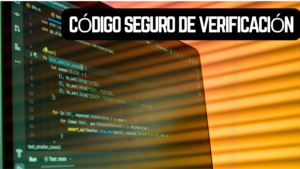Dreaming of sun-soaked workdays in Barcelona or seaside calls from Málaga? Spain’s digital nomad visa makes it possible — if you meet the requirements (and translate your documents properly).
Picture this: You’re sipping a café con leche in a lively plaza in Valencia. The scent of orange blossoms in the air, the soft chatter of locals around you. Your laptop’s open, your Wi-Fi is strong, and you’re finishing a project for your London-based client before heading to the beach.
It’s not a daydream — it’s the everyday reality for those who’ve secured Spain’s digital nomad visa.
This visa is part of Spain’s push to attract international remote workers, offering a legal, flexible, and affordable way to live in one of Europe’s most desirable countries. But like all good things, it comes with some paperwork — and you’ll need sworn translations.
Let’s break it all down.
What is the Digital Nomad Visa for Spain?
Spain’s digital nomad visa, introduced in 2023 under the Startups Law, allows non-EU nationals to legally live in Spain while working remotely for a foreign employer or international clients.
Whether you’re a freelancer, contractor, or salaried employee working for a company abroad, this visa opens the door to a one-year renewable residence — with the option to apply for longer stays from within Spain.

Who is eligible?
To apply for Spain’s digital nomad visa, you must meet the following requirements:
Professional eligibility
- Remote job or freelance activity for a non-Spanish company (Spanish clients must account for less than 20% of your income).
- A minimum of 3 months working relationship with your current employer or clients.
- A university degree, professional qualification, or at least 3 years of proven work experience.
Financial requirements
- Stable income of at least 200% of Spain’s minimum wage — around €2,520/month in 2025.
- Additional income required if you’re bringing dependents.
Documentation and legal checks
- No criminal record in your country of residence for the past 5 years.
- Private health insurance covering your entire stay in Spain.
- Proof of accommodation (temporary or long-term).

Where to apply for your Digital Nomad Visa?
You have two options:
- From your home country, via a Spanish consulate:
- You’ll be granted a 1-year visa.
- After entering Spain, you can apply for a residence permit.
2. From within Spain, if you’re already here legally (e.g. as a tourist):
- Apply for a 3-year residence permit directly.
- The process is handled by the UGE-CE (Large Companies and Strategic Groups Unit).
You’ll need sworn translations
Here’s a step many applicants overlook — and it can make or break your application.
Most official documents must be submitted in Spanish, including:
- Criminal record certificates
- Academic degrees or proof of experience
- Work contracts or freelance agreements
- Financial records or tax documents
But not just any translation will do.
You’ll need a sworn translation by a certified translator recognised by the Spanish Ministry of Foreign Affairs. These translations carry legal weight and are required for your documents to be accepted.
Tip: Start this process early — getting documents apostilled and translated takes time.
Need sworn translations? I can help
I’m a certified sworn translator with extensive experience translating legal, financial and personal documents for visa applications — including the digital nomad visa for Spain.
I work quickly, accurately, and in compliance with all legal standards set by the Spanish authorities.
Whether you’re in the UK, US, Canada, Australia or beyond, I can help you make your move to Spain smooth and stress-free.
Get in touch for a free quote or to ask about your specific case.
Ready to turn your remote job into a Mediterranean lifestyle?
Make Spain your next home — and let me help you get there, one certified translation at a time.







